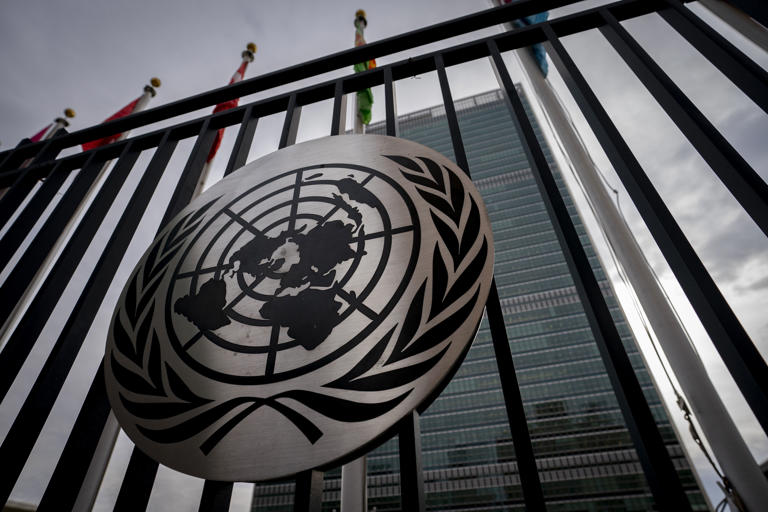The United States is leading the charge on the first-ever United Nations resolution focused on artificial intelligence (AI). This resolution aims to ensure that AI technology is utilized in a manner that is safe, secure, and trustworthy, with a particular emphasis on providing equal access to all countries, including those in the developing world.
The draft resolution put forward to the General Assembly seeks to bridge the digital divide between nations and ensure that all countries are actively engaged in discussions surrounding AI. It emphasizes the importance of ensuring that countries have the necessary technology and capabilities to harness the benefits of AI, such as disease detection, flood prediction, and workforce development.
Acknowledging the rapid advancement and widespread use of AI, the draft resolution emphasizes the urgent need for global consensus on establishing safe, secure, and trustworthy AI systems. It also acknowledges that the governance of AI is an evolving area that requires further exploration of potential governance approaches.
U.S. National Security Advisor Jake Sullivan highlighted the importance of initiating a global dialogue on managing the implications of AI technology. He emphasized that the resolution aims to garner global support for a set of fundamental principles for the development and use of AI, while also outlining a strategy to leverage AI systems for positive outcomes while mitigating risks.
The United States engaged in extensive negotiations with all 193 U.N. member nations over the past three months to develop this resolution. These negotiations involved hundreds of hours of direct talks, 42 hours of formal negotiations, and input from 120 nations. The resolution has achieved consensus support from all member states and is set to be formally considered later this month, marking a significant step forward in promoting safe and responsible AI usage on a global scale.
While General Assembly resolutions lack legal binding force, they serve as significant indicators of global sentiment and priorities. The draft resolution on artificial intelligence (AI) presented to the General Assembly underscores the objective of leveraging AI to accelerate progress towards achieving the United Nations’ Sustainable Development Goals for 2030, including addressing global hunger, poverty, health disparities, education accessibility, and gender equality.
The resolution encourages various stakeholders, including countries, regional and international organizations, civil society, academia, and individuals, to collaborate in developing and supporting regulatory and governance frameworks for safe AI systems. It emphasizes the importance of preventing improper or malicious use of AI systems, stressing compliance with international law.
As the European Union prepares to finalize the world’s first comprehensive AI regulations, countries worldwide, including the United States and China, are also pursuing AI regulatory initiatives. The U.S.-drafted resolution urges UN member states and other entities to assist developing countries in accessing the benefits of digital transformation and safe AI systems, highlighting the necessity of upholding human rights and fundamental freedoms throughout the AI life cycle.
U.S. Ambassador Linda Thomas-Greenfield highlighted President Joe Biden’s recognition of AI’s vast potential in his address to the General Assembly, emphasizing the resolution’s goal of establishing international consensus on the responsible design, development, deployment, and use of AI systems to support the 2030 UN goals. She described the resolution as a significant advancement in promoting safe, secure, and trustworthy AI globally, acknowledging the profound impact of this technology on society. If adopted, it would mark a historic milestone in shaping the future of AI governance and utilization.
